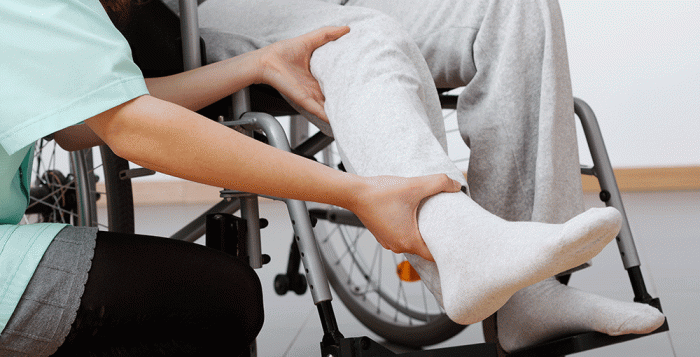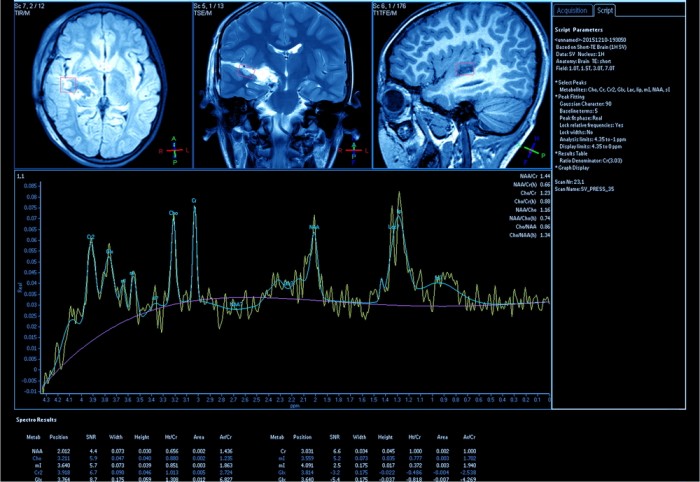Melissa Dehoff
New CDC Data on Sports & Recreation-Related TBI
The Centers for Disease Control and Prevention (CDC) released new data contained in a Morbidity and Mortality Weekly Report (MMWR) report, “Emergency Department Visits for Sports and Recreation-Related (SRR) Traumatic Brain Injuries (TBI) Among Children – United States, 2010–2016.”
Some of the data includes:
- An estimated 283,000 children seek care in US emergency departments each year for a sports-or recreation-related TBI
- Contact sports contributed to nearly half (45 percent) of the SRR-TBI visits examined
- The activities with the highest number of SRR-TBI visits included: football, bicycling, basketball, playground activities, and soccer
- Males and children aged 10–14 and 15–17 were most likely to sustain an SRR-TBI
The report includes prevention efforts and strategies to reduce the risk for SRR-TBI, including but not limited to limiting player-to-player collisions through rule changes, teaching strategies to reduce opportunities for head impacts, and using pre-participation athletic examinations to identify athletes at increased risk for TBI.
The CDC has many resources available, including:
Contact Melissa Dehoff, RCPA Director of Rehabilitation Services, with questions.
MedPAC Evaluation of Episode-Based Payment System for PAC
One of the topics on the agenda at the March 2019 Medicare Payment Advisory Commission (MedPAC) public meeting focused on the evaluation of an episode-based payment system for post-acute care (PAC). MedPAC advises Congress about the federal programs (Medicare and Medicaid). Over the years, there have been many discussions regarding whether the federal government should implement one payment system across post-acute providers, which vary greatly in how they are paid. Post-acute providers include inpatient rehabilitation facilities (IRFs), skilled nursing facilities (SNFs), home health agencies, and long-term care hospitals (LTCHs). During the March presentation, MedPAC shared that they favor a stay-based system, rather than one tied to a whole episode of care for fear that the episode of care would encourage providers to discharge patients early. The Department of Health and Human Services (HHS) will work with an outside vendor to build a unified PAC payment model with a goal to submit it to Congress by 2022. Contact Melissa Dehoff, RCPA Director of Rehabilitation Services, with questions.
Updated IRF Provider Preview Reports Available
The Centers for Medicare and Medicaid Services (CMS) recently updated the inpatient rehabilitation facility (IRF) provider preview reports. The data contained in these reports is based on quality data that was submitted by providers between Quarter 3 for 2017 and Quarter 2 for 2018 and reflects what will be published on IRF Compare when the site is refreshed in June 2019. Instructions are available for providers on how to review the reports. The reports will be available for providers to review until April 3, 2019. Contact Melissa Dehoff, RCPA Director of Rehabilitation Services, with questions.
March is Brain Injury Awareness Month
HHS Announces EMS Payment Reform
Yesterday, the US Department of Health and Human Services (HHS) announced a new payment model for emergency ambulance services that aims to allow Medicare fee-for-service (FFS) beneficiaries to receive the most appropriate level of care, at the right time and place, with the potential for lower out-of-pocket costs.
Beginning in early 2020, the new model – Emergency Triage, Treat, and Transport (ET3) Model – will make it possible for participating ambulance suppliers and providers to partner with qualified health care practitioners to deliver treatment in place (either on-the-scene or through telehealth), and with alternative destination sites (such as primary care doctors’ offices or urgent-care clinics), to provide care for Medicare beneficiaries following a medical emergency for which they have accessed 911 services. In doing so, the model seeks to engage health care providers across the care continuum to more appropriately and effectively meet beneficiaries’ needs. Additionally, the model will encourage development of medical triage lines for low-acuity 911 calls in regions where participating ambulance suppliers and providers operate. The ET3 Model will have a five-year performance period, extending through 2025.
Currently, Medicare primarily pays for unscheduled, emergency ground ambulance services when beneficiaries are transported to a hospital emergency department (ED), creating an incentive to transport all beneficiaries to the hospital even when an alternative treatment option may be more appropriate. To counter this incentive, the ET3 Model will test two new ambulance payments, while continuing to pay for emergency transport for a Medicare beneficiary to a hospital ED or other destination covered under current regulations:
- Payment for treatment in place with a qualified health care practitioner, either on-the-scene or connected using telehealth; and
- Payment for unscheduled, emergency transport of Medicare beneficiaries to alternative destinations (such as 24-hour care clinics) other than destinations covered under current regulations (such as hospital EDs).
The ET3 Model encourages high-quality provision of care by enabling participating ambulance suppliers and providers to earn up to a five percent payment adjustment in later years of the model based on their achievement of key quality measures. The quality measurement strategy will aim to avoid adding more burden to participants, including minimizing any new reporting requirements. Qualified health care practitioners or alternative destination sites that partner with participating ambulance suppliers and providers would receive payment as usual under Medicare for any services rendered.
The model will use a phased approach through multiple application rounds to maximize participation in regions across the country. In an effort to ensure access to model interventions across all individuals in a region, CMS will encourage ET3 Model participants to partner with other payers, including state Medicaid agencies.
Contact Melissa Dehoff, RCPA Director of Rehabilitation Services, with questions.
OLTL Responsibilities of SCE Fair Hearing & Appeal Requirements
On February 11, 2019, the Office of Long-Term Living (OLTL) released Bulletin 59-19-03, Hearings and Appeals. The bulletin provides the responsibilities of Service Coordination Entities (SCEs) with respect to the notice and fair hearing requirements. Also included with the bulletin are the following attachments:
- MA 561 – Notice of Service Determination and the Right to Appeal
- MA 562 – Decision to Withdraw an Appeal Request
- MS 561 – MA 561 Form Instructions for Service Coordinators
- Bureau of Hearings and Appeals Agency Appeal Cover Sheet
- Bureau of Hearings and Appeals Agency Appeal Cover Sheet Instructions
- OHA 147 – Bureau of Hearings and Appeals Agency Expedited Information Sheet
- BHA Regions Chart
The bulletin is updated to reflect expedited appeals requirements that were established by the Medicaid Eligibility Final Rule and can be found in 42 CFR Part 431.224. The SCEs are responsible to understand the rights and procedures set forth in the state regulations and federal regulations. The bulletin highlights the many requirements of the SCEs.
OLTL has scheduled a webinar for Monday, February 25, 2019 at 2:00 pm to answer questions SCEs may have in relation to this bulletin. Please register here. After registering, you will receive a confirmation email containing information about joining the webinar. Contact Melissa Dehoff, RCPA Director of Rehabilitation Services, with questions.
DOD Proposed Rule on Addition of Therapy Assistants as TRICARE Authorized
The Department of Defense (DoD) issued a proposed rule to add certified or licensed physical therapy assistants (PTAs) and occupational therapy assistants (OTAs) as TRICARE-authorized providers, to engage in physical or occupational therapy, under the supervision of a TRICARE-authorized physical or occupational therapist, in accordance with Medicare’s rules for supervision and qualification when billed by under the supervising therapist’s national provider identification number. This rule will align TRICARE with Medicare’s policy. Comments on this proposed rule will be accepted until Tuesday, February 19, 2019. Contact Melissa Dehoff, RCPA Director of Rehabilitation Services, with questions.
Head Injury Program Accepting Applications for Individuals 18 & Older
The Pennsylvania Department of Health (DOH) published a notice in the January 26, 2019 Pennsylvania Bulletin indicating that effectively immediately, they will begin accepting applications to the Head Injury Program (HIP) for individuals 18 years of age and older.
The HIP, administered in the Bureau of Family Health (BFH), through the Emergency Medical Services Act of 1985, funds short-term intensive brain injury rehabilitation for residents in this Commonwealth who have sustained a traumatic brain injury.
To provide these services, the HIP contracts with specialized brain injury providers who offer therapies such as physical, occupational, speech, and cognitive therapies, along with assistive community integration and psychological services. Rehabilitation services can be received in a residential setting as outpatient services or as home-based and community-based services depending on the need of the individual.
To obtain an application, contact the HIP at 717-772-2763 or the Brain Injury Helpline at 866-412-4755.
OLTL Definition of Day Unit Survey for Residential Habilitation Providers
Today, the Office of Long-Term Living (OLTL) issued a survey to all residential habilitation providers to obtain information regarding 2017 utilization and the definition of a day unit. The link to the survey is below and all residential habilitation providers are strongly encouraged to complete it.
This issue is one that the brain injury providers have been asking OLTL to address and change for years. Fewer responses to this survey will prevent Mercer from having sufficient data to estimate the cost associated with making the change to the service definition that the Centers for Medicare and Medicaid Services (CMS) requires when requesting an amendment.
The responses to the survey are due by February 22, 2019. Please do not delay and respond today!
Please contact Mike Penney at OLTL if you have any issues completing the survey.
















